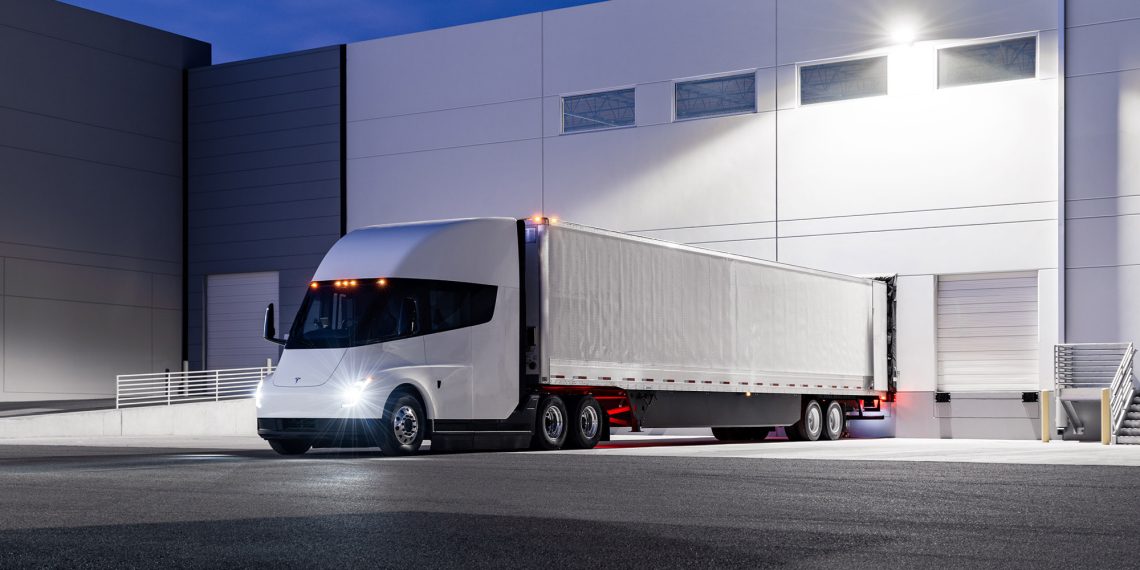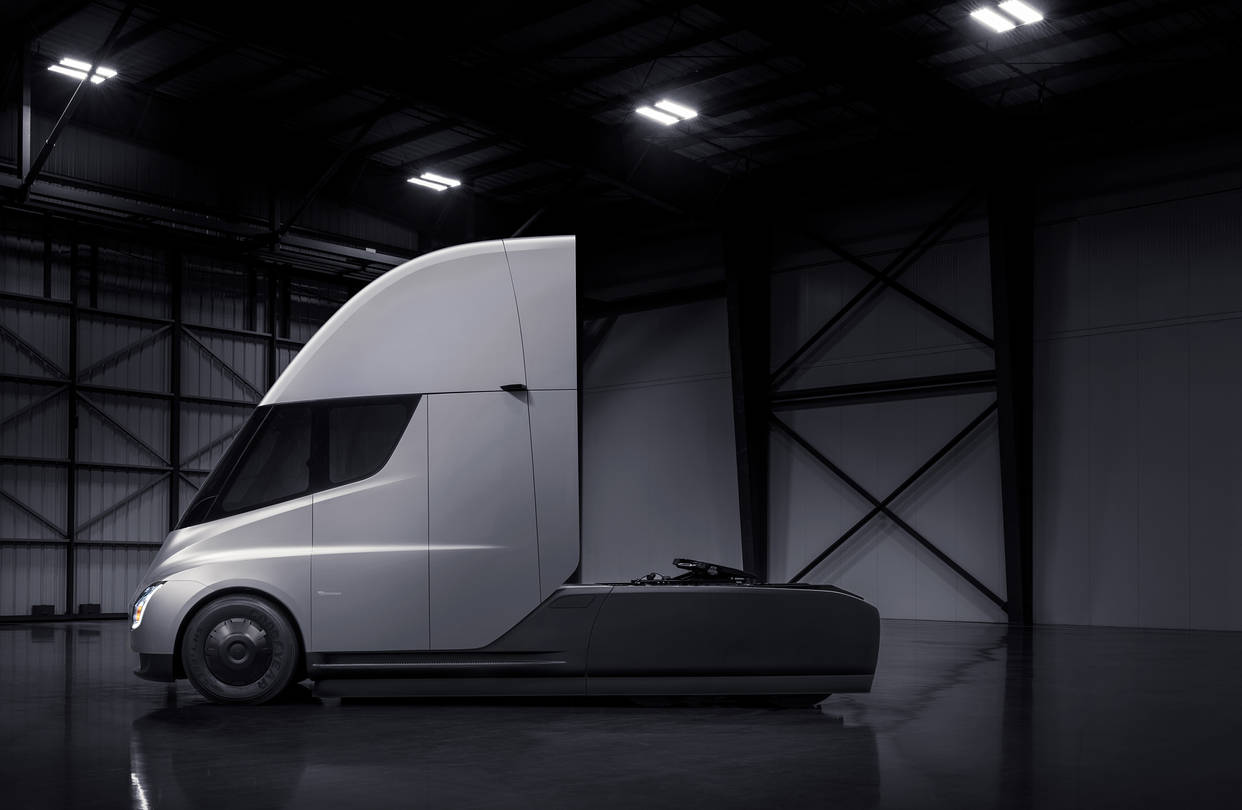Tesla is facing difficulties in delivering the fleet of semi-trucks it promised, highlighting obstacles in its truck manufacturing efforts.
PepsiCo, which ordered 100 Tesla Semis in 2017 and made initial payments, currently has only 36 trucks in operation. This shortfall underscores the challenges Tesla faces as it aims to establish itself in the truck industry.
Other companies like UPS and Walmart Canada are still waiting for their Tesla Semis and have turned to competing electric truck manufacturers in the meantime.
These delivery challenges come at a challenging time for Tesla, which is already dealing with slower growth in its consumer electric vehicle segment.
Tesla’s stock has been under pressure, leading the company to reduce prices, which in turn affects its profit margins. The recent cancellation of Tesla’s much-anticipated affordable car has also dampened investor confidence.

Tesla Semis (Via Joshua Keel/Getty Images)
Electric trucks present an attractive option for reducing greenhouse gas emissions, aligning with companies’ sustainability goals.
Under the Biden administration, companies investing in electric trucks qualify for significant subsidies, which encourage adoption.
Despite these delays, Tesla remains a leader in the electric truck sector. It plans to expand its truck manufacturing operations in Nevada and potentially in Europe.
While Tesla has made some progress with its semi-truck fleet, challenges persist in meeting customer demand and delivery schedules.
With competitors like Daimler Truck making strides in the electric truck market, Tesla faces growing pressure to fulfill its commitments and maintain its leadership position.


























